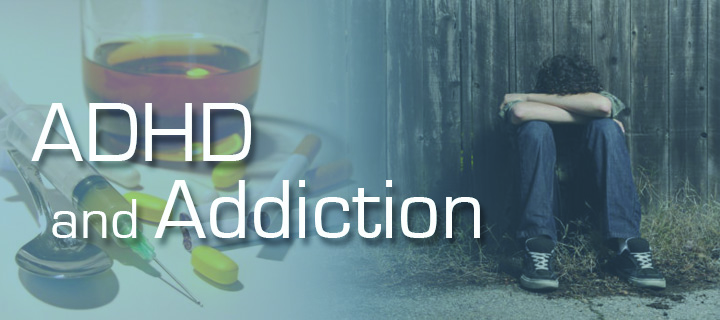What is ADHD?
Attention-deficit/hyperactivity disorder (ADHD) is a disorder of the brain which is identified by an ongoing pattern of inattention and/or hyperactivity-impulsivity that interferes with functioning or development, especially in school while young. Kids with ADHD are more prone to being made fun of and isolated by peers for being disruptive or socially inappropriate, fostering low self-esteem. Often, drugs are used to cope with the shame of social challenges as well as difficulty in the classroom.
Inattention: This is marked by a teen wandering off task, lacking persistence, and having difficulty maintaining their focus. They appear disorganized in their thoughts and communications, and it’s not because they don’t understand what they’re speaking about, or because they are being defiant.
Hyperactivity: This is often marked by an inability to stay still; teens with hyperactivity will move about constantly, even when it’s not appropriate to do so. They may also fidget, display restless leg, or talk.
Impulsivity: Teens are normally somewhat impulsive, but the type of impulsivity that accompanies ADHD includes hasty decisions and actions that occur in the moment without any apparent forethought. These decisions and actions, and often speech, may incur a high potential for harm, bodily, relationship-wise, or other. Impulsivity also comes with a need for immediate reward without delaying. Teens with impulsivity can tend to be socially intrusive, interrupt others a lot, and make important decisions without considering long-term consequences.
What Treatments are used for ADHD?
For many people, medication can help calm the symptoms of their ADHD. In addition to medication prescribed by a licensed physician who specializes in ADHD, psychotherapy can be of great assistance in helping teens and their families better cope with everyday problems.
At Ascend Healthcare, we use cognitive behavioral therapy (CBT) to teach clients mindfulness techniques. Teens learn how to maintain an awareness of their thoughts and feelings, which helps them to improve both their focus and concentration. We also offer a significant amount of parent coaching in order to enable parents to help teens with their ADHD symptoms in a supportive and productive manner. Teaching parents how to define appropriate behavior and to support it with immediate and consistent praise can help reinforce appropriate behavior in their children.
In the classroom, we utilize techniques approved by the CDC to assist ADHD clients with their ability to function and learn in a classroom setting. We provide calming items, reinforce proper activity, even when it is not the most desired behavior of a client, and offer peer mediation. We use behavioral prompts such as visual cues, hand gestures, and proximity to help remind students about expectations for the learning environment.
How Does Addiction Factor into ADHD? How Likely Are Kids With ADHD to Suffer From Substance Abuse?
Like any other mental health disorder, teens with ADHD may be more inclined to use drugs or alcohol as a way to cope with their symptoms. Studies have found that children with ADHD are more likely to start abusing alcohol in their teenage years. One study showed that 14% of children with ADHD, ages 15-17, had problems with alcohol abuse, as adults when compared to peers without ADHD. Research also shows a link between ADHD and marijuana use, along with other recreational drugs. People with ADHD tend to start having problems with drugs and alcohol at an earlier age than people who do not suffer from ADHD. Prescription medication for ADHD can also be misused and must be closely monitored in teens to ensure that no ill side-effects develop due to misuse, especially chemical dependence on stimulants for more than just ADHD symptoms. At Ascend Healthcare, we take a strong dual-diagnosis stance to the combination of mental health disorders with substance abuse. We utilize a wide array of therapeutic modalities to address both conditions together in order to allow clients to recover and develop healthy habits.
Some of our Therapy Modalities and Treatment Programs Include
- Residential Treatment Center
- Dual Diagnosis Treatment
- Mental Health Treatment
- Family Therapy Programs
When does a teen need help?
A teen struggling with ADHD already has a lot on their plate, and it may be hard to be able to tell what may be the result of their ADHD or potentially from the abuse of drugs or alcohol. A sudden dip in grades, a lack of participation at school, mood change and irritability, a change in weight, appetite, or sleeping patterns may indicate that a teenager is struggling with more than just their ADHD. The introduction of any illegal drugs to the system can impair not just judgment and functionality, but it can interfere with prescription medication that can often have dangerous side effects when mixed with illegal drugs. If you or a teenager you know are struggling with drug/alcohol use combined with ADHD, call us today at 310.388.3713 for a free assessment.







